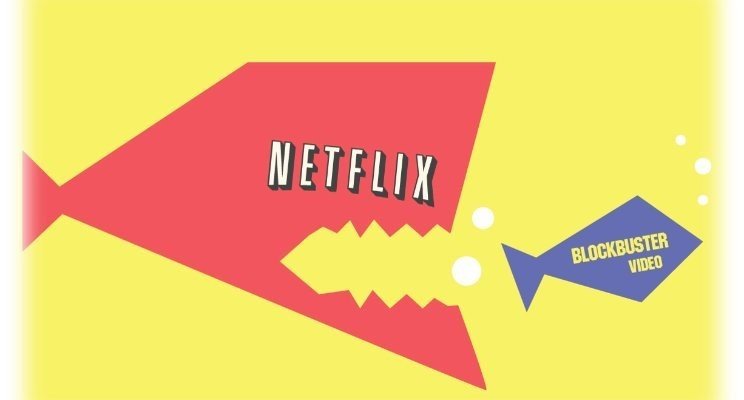Innovate or die. The continued impact of Industry 4.0
Originally written in 2018.
The Oxford Dictionary definition of ‘disruption’ is ‘disturbance or problems which interrupt an event, activity or process’.
The word ‘disruption’ is widely used, especially in the Tech sector, and in a broader sense when we talk about the momentum hurtling us at pace into the 4th Industrial Revolution. But the word ‘disruption’ often comes with negative connotations. Disruption to the railways is bad. Disruption to the markets is bad. But disruption to established industries? Bad for some, but surely good progress overall?
A better term would probably be ‘innovation’. The process of ‘making changes to something established, especially by introducing new methods, ideas or products’.
But innovation itself takes on many forms. And often established firms and industries mistake ‘continual improvement’ for innovation. The reality is improvement comes nowhere close to innovation.
A giant leap forward
Lazslow Bock, the ex SVP of People at Google and co-founder of Humu, talks about the need for firms to be truly innovative to keep pace with the disruption of the 4th industrial revolution. At a HR and Recruitment Tech I attended in Las Vegas in October 2018, he talked about two distinct methods of innovation: the ‘roof tops’ vs. the ‘moon shots’.
Put simply, roof top innovation is the process of continually improving something. For example, Microsoft launching newer and better versions of it’s Windows operating system every couple of years … the same core product and purpose, but better each time. It’s a roof top because it’s like someone standing on the ground and then jumping to the top of a building – they’re higher than they were before, therefore they’re better than they were before. But it’s still the same building.
A moon shot by contrast is a seismic event that fundamentally disrupts or even destroys established products, services and, sometimes, entire industries. And with it, can cause the demise of a number of established firms.
It’s like someone standing on the ground, watching everyone else jump on top of the roofs of higher and higher buildings, before taking a giant leap and jumping to the moon, leaving the roof top innovators in their wake. Think the iPhone and iPod destroying CDs and music shops. Think Netflix destroying Blockbuster and other video rental providers (did you know that Blockbuster were offered the change to acquire Netflix for $50m in the early days but politely declined? Whoops!).
A roof top innovation in video rental was Love Film delivering DVDs through the post. We thought this was fantastic. And then, all of a sudden, you could instantly live stream thousands of films and box sets whenever you wanted direct to your TV through Netflix. No more trips to Blockbuster or long waits for the post.
Whilst technological advancements and the onset of the 4th industrial revolution present both major opportunities for people and firms to create something new and successful, and for improvements in the quality of life for everyone (consider how standards of living were improved by the 1st, 2nd and 3rd industrial revolutions), it also still continued to pose a major threat to established firms and to traditional jobs. CEOs and Boards, event after 20 - 30 years of evidence, still often underestimate the impact that technological disruption can and will have on their own industry, and as such, continue to focus on ‘roof top’ innovation as a way to improve their products or services. They focus on winning market share form their competitors. Potentially blinding them to the very real possibility that the market itself could disappear in the near future.
What’s the point in having a larger portion of the pie if the pie itself is shrinking? Jim Keys, the ex-CEO of Blockbuster once said ‘RedBox and Netflix aren’t even on the radar screen in terms of competition’ some 18 months before putting his company in to administration. I guarantee he’s not the only CEO to underestimate the risk posed to traditional industry.
So, as the world innovates more and more, it’s worth taking a step back and asking yourself ‘are we truly driving innovation’ and ‘do we really understand what the 4th industrial revolution could mean for our business’? If you can’t answer conclusively, as most won’t be able to, it’s time to start stretching the strategic horizon and thinking bigger, better, quicker, and, ultimately, different.


